Welcome to the March 2013 Carnival of Natural Parenting: Tough Conversations
This post was written for inclusion in the monthly Carnival of Natural Parenting hosted by Hobo Mama and Code Name: Mama. This month our participants have spoken up about how they discuss complex topics with their children. Please read to the end to find a list of links to the other carnival participants.
***

The majority of México is Catholic and nearly every house has a cross displayed.
We moved from a predominately Protestant but mostly religiously tolerant country to a nearly universally Catholic country when we moved from the United States to México. So the question became how to raise a religious but open-minded child in such a dogmatic and closed culture?
Don’t get me wrong, I’m not saying there is anything inherently wrong with Mexican Catholicism. After all, there are millions of devout devotees. But I wasn’t raised as a Mexican Catholic, and I did not wish to limit my son’s religious experience just because it’s the religion of the masses.
Although my husband was raised as a Mexican Catholic, our religious differences were not a point of contention between us, until we arrived in México with our 4-year-old child who had not been baptized as an infant. My mother-in-law started in immediately with how it was necessary for our son to be baptized in order to remove the devil’s horns from his head. (I admit to thinking WHATEVER to that idea.) My husband began to agree and make noises about how we should get him baptized. I told him that if he wanted to get our son baptized, although personally not seeing the necessity of that myself, he could go ahead and make the arrangements himself. As he never went to make the arrangements (being male) and my mother-in-law was unwilling to take on the expense (being cheap) this passed and our son remained unbaptized.
Then came the First Communion debate. Having not baptized our son, I did not see the necessity of having him prepared for his First Communion, but since his cousin, the same age was going through the ritual, it came up again. Again, I told my husband if he wanted to do this, he would need to make the arrangements, and again my mother-in-law was not interested enough in the plight of my son’s soul to make the financial sacrifices involved (clothes and a party mostly). Being a non-Catholic, I was automatically barred from involvement, unless of course I went and became Catholic. I wasn’t interested in doing that.
We attended mass on a few occasions, mostly for the experience of it over the last 6 years, but we never really had to confront the issue until last May when my mother-in-law was involved in an accident. Then, all of a sudden, religion became a big deal in our lives. My mother-in-law’s personal saint was El Niño de Atocha, and the family lit candles to that saint in supplication for her life. The saint was moved from her house to ours since my father-in-law was either in jail or at the hospital and couldn’t be there to keep a candle lit, so it became my responsibility. My father-in-law made a vow to walk descalzo (without shoes) to the Virgin of Guadalupe‘s shrine in Soledad if my mother-in-law recovered. My brother-in-law B became downright hostile towards me, the only non-Catholic in the bunch, although I tried to do what I could to help. When my mother-in-law died, she received the last rights and made her confession as any good Catholic would. My father-in-law asked me, not his religious son B if he needed to complete his pilgrimage since she died. I said no, I didn’t think so.

The altar of El señor de Escapulitas Catholic Church in Moroleón
We had the funeral in the El Señor de Escapulitas with all the pomp and circumstance of a Catholic funeral. Then we began the novena(the 9-day prayer session for the soul of the departed to be released from purgatory). And then my son asked me about death.
So we talked about it, he and I. I asked him what he thought might happen when someone dies. He said he wasn’t sure. Being only 10, his death experiences involved mostly pets and livestock. So I explained that most people in México believed the soul lives on for a time in a place called purgatory, which wasn’t heaven or hell and that there would be rituals that were intended to help his grandmother’s soul move from purgatory towards one or the other. We talked about what heaven might be or what hell might be. Then I presented other ideas to him. I talked about the concept of reincarnation, the belief that the essence of a person is transferred to another living being, human or otherwise, in its quest for nirvana. He found that concept fascinating. I talked about that perhaps nothing at all happens at death, that perhaps we just cease to be and our body returns to the earth as part of a natural cycle of life. He was quiet for awhile after our discussion, thinking over things and finding his own way in the darkness that accompanies death.
That night, my son sat down with us for the first of the 9 prayer sessions of the novena. His cousins, who were baptized and confirmed, played outside as we prayed. He said to me after the prayers, “Mom, I don’t think that abuelita is in purgatory, but I prayed to remember her.” He endured the entire 9 days and subsequent mass, the only one of her many grandchildren who did so.
I’m not sure he’s made up his mind about death yet. I’m not sure I have either. We find comfort for our grief as we can. I’ve shared several of my favorite poems and scriptures about death and life with him. He’s listened and commented and gone on with his young life. I know perhaps it would be easier on him if I had made definite statements about what happens when someone dies instead of letting him grope about for his own answers. But finding your own way is the most precious part of living, and I would not deprive him that, even if he is still too young to understand.
***

***
 Visit Hobo Mama and Code Name: Mama to find out how you can participate in the next Carnival of Natural Parenting!
Visit Hobo Mama and Code Name: Mama to find out how you can participate in the next Carnival of Natural Parenting!
Please take time to read the submissions by the other carnival participants:
(This list will be updated by afternoon March 12 with all the carnival links.)
- A Difficult Conversation — Kellie at Our Mindful Life is keeping her mouth shut about a difficult topic.
- Discussing Sexuality and Objectification With Your Child — At Authentic Parenting, Laura is puzzled at how to discuss sexuality and objectification with her 4-year-old.
- Tough Conversations — Kadiera at Our Little Acorn knows there are difficult topics to work through with her children in the future, but right now, every conversation is a challenge with a nonverbal child.
- From blow jobs to boob jobs and lots of sex inbetween — Mrs Green talks candidly about boob jobs and blow jobs…
- When Together Doesn’t Work — Ashley at Domestic Chaos discusses the various conversations her family has had in the early stages of separation.
- Talking To Children About Death — Luschka at Diary of a First Child is currently dealing with the terminal illness of her mother. In this post she shares how she’s explained it to her toddler, and some of the things she’s learned along the way.
- Teaching 9-1-1 To Kids — Kerry at City Kids Homeschooling talks about the importance of using practical, age-appropriate emergency scenarios as a springboard for 9-1-1 conversations.
- Preschool Peer Pressure — Lactating Girl struggles to explain to her preschooler why friends sometimes aren’t so friendly.
- Frank Talk — Rosemary at Rosmarinus Officinalis unpacks a few conversations about sexuality that she’s had with her 2-year-old daughter, and her motivation for having so many frank discussions.
- When simple becomes tough — A natural mum manages oppositional defiance in a toddler at Ursula Ciller’s Blog.
- How Babies are Born: a conversation with my daughter — Justine at The Lone Home Ranger tries to expand her daughter’s horizons while treading lightly through the waters of pre-K social order.
- Difficult Questions & Lies: 4 Reasons to Tell The Truth — Ariadne of Positive Parenting Connection shares the potential impact that telling lies instead of taking the time to answer difficult questions can have on the parent-child relationship.
- Parenting Challenges–when someone dies — Survivor at Surviving Mexico writes about talking to her child about death and the cultural challenges involved in living in a predominantly Catholic nation.
- Daddy Died — Breaking the news to your children that their father passed away is tough. Erica at ChildOrganics shares her story.
- Openness — sustainablemum prepares herself for the day when she has to tell her children that a close relative has died.
- Embracing Individuality — At Living Peacefully with Children, Mandy addressed a difficult question in public with directness and honesty.
- Making the scary or different okay — Although she tries to listen more than she talks about tough topics, Jessica Claire of Crunchy-Chewy Mama also values discussing them with her children to soften the blow they might cause when they hit closer to home.
- Talking to My Child About Going Gluten Free — When Dionna at Code Name: Mama concluded that her family would benefit from eliminating gluten from their diet, she came up with a plan to persuade her gluten-loving son to find peace with the change. This is how they turned the transition to a gluten-free lifestyle into an adventure rather than a hardship.
- Discussing Difficult Topics with Kids: What’s Worked for Me — Deb Chitwood at Living Montessori Now shares parenting practices that enabled discussions of difficult topics with her (now-adult) children to be positive experiences.
- Tough Conversations — Get some pointers from Jorje of Momma Jorje on important factors to keep in mind when broaching tough topics with kids.
- Protect your kids from sneaky people — Lauren at Hobo Mama has cautioned her son against trusting people who’d want to hurt him — and hopes the lessons have sunk in.
- Mommy, What Does the Bible Say? — Amy at Me, Mothering, and Making it All Work works through how to answer a question from her 4-year-old that doesn’t have a simple answer.
- When All You Want for Them is Love: Adoption, Abandonment, and Honoring the Truth — Melissa at White Noise talks about balancing truth and love when telling her son his adoption story.
0.000000
0.000000





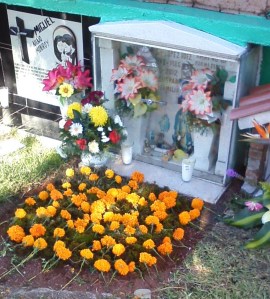
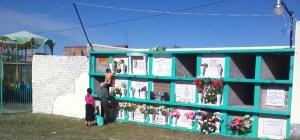
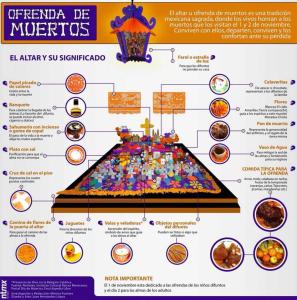
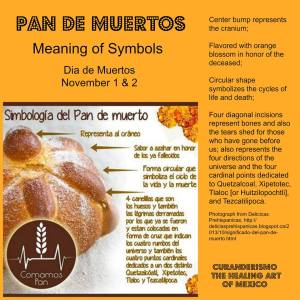
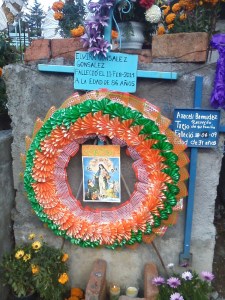





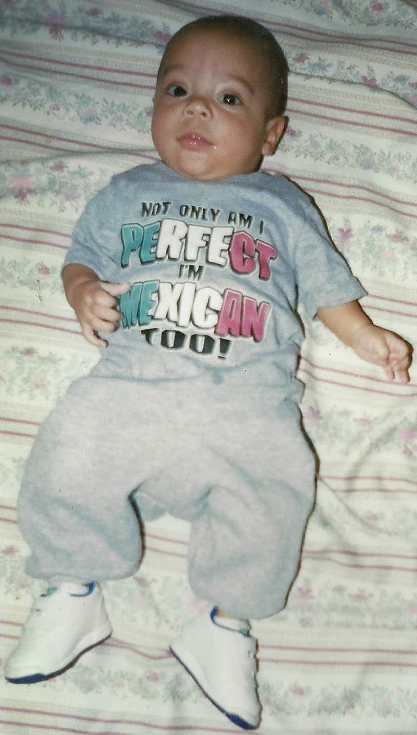
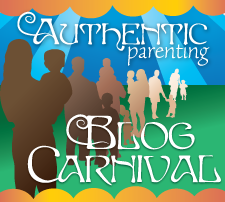 Visit
Visit